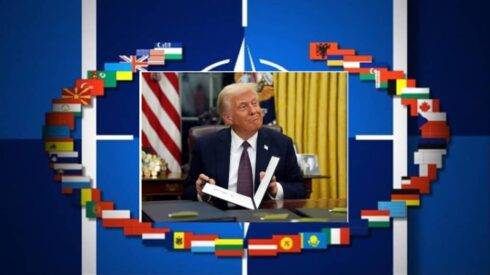BBC correspondent Mark Lowen has been arrested and deported from Turkey after covering the country’s largest anti-government protests in years. Lowen, who had been in Istanbul for several days, was detained for 17 hours before Turkish authorities expelled him, citing him as a “threat to public order.” His deportation comes as part of a broader crackdown on journalists reporting on the political unrest following the arrest of Istanbul’s mayor, Ekrem İmamoğlu, on corruption charges.
The BBC has strongly condemned the treatment of Mark Lowen and vowed to make formal representations to Turkish authorities, emphasizing the importance of press freedom. Several other journalists covering the protests have also been detained, raising concerns about media repression in the country.
The Protests and Mass Arrests Across Turkey
The protests in Turkey erupted following the arrest of Istanbul’s Mayor Ekrem İmamoğlu, who is seen as a key rival to President Recep Tayyip Erdoğan. İmamoğlu, a member of the Republican People’s Party (CHP), was detained on corruption charges, which he strongly denies. His supporters argue that the charges are politically motivated, aimed at removing him from the 2028 presidential race.
So far, the protests have led to the detention of over 1,850 people, including 11 journalists. Demonstrators, mostly opposition supporters and activists, have taken to the streets in Istanbul, Ankara, and other major cities, defying police orders and facing violent crackdowns. Nightly demonstrations have resulted in clashes with security forces, with reports of water cannons, tear gas, and rubber bullets being used against protesters.
Despite the heavy-handed response, Turkey’s main opposition party, CHP, has called for a massive rally in Istanbul on Saturday, signaling that the protests are far from over.
Mark Lowen’s Statement and BBC’s Response
Following his deportation, Mark Lowen expressed his distress over being expelled from a country he once called home. “To be detained and deported from the country where I previously lived for five years and for which I have such affection has been extremely distressing. Press freedom and impartial reporting are fundamental to any democracy,” Mark Lowen said in a statement.
The BBC has strongly criticized Turkish authorities, calling Mark Lowen’s deportation an “extremely troubling incident.” Deborah Turness, CEO of BBC News, stated: “Mark Lowen is a very experienced correspondent with a deep knowledge of Turkey, and no journalist should face this kind of treatment simply for doing their job. We will continue to report impartially and fairly on events in Turkey.”
The BBC plans to challenge the deportation through diplomatic channels, highlighting the broader concerns over media suppression in Turkey.
Turkey’s Crackdown on Press Freedom
Mark Lowen’s deportation is part of a wider crackdown on independent journalism in Turkey. The Turkish broadcasting watchdog, RTÜK, recently imposed a 10-day broadcast ban on opposition television channel Sözcü for its coverage of the protests, accusing it of incitement.
Several other journalists, including a photojournalist from Agence France-Presse (AFP) and multiple Turkish reporters, were detained during the protests. Some of them were released after facing questioning, while others remain in custody.
The Turkish government has consistently rejected international criticism over press freedom, insisting that its judicial system operates independently. However, human rights organizations, including Reporters Without Borders (RSF), have condemned Turkey’s treatment of journalists, ranking it among the world’s worst for press freedom.
Growing Tensions and Future Implications
As protests continue, tensions between opposition supporters and the government are escalating. Clashes have intensified, particularly at Middle East Technical University, where students were met with water cannons, pepper spray, and plastic pellets. President Erdogan has labeled the demonstrations as “evil” and blamed the opposition for “disturbing the peace.”
Despite government warnings, protesters have vowed to continue their demonstrations, and CHP leaders are planning a major rally in Istanbul this weekend. With growing international scrutiny and the suppression of journalists, Turkey faces increasing pressure to reassess its handling of political dissent and media freedoms.
For now, the expulsion of Mark Lowen underscores the challenges journalists face in reporting on authoritarian governments and the ongoing struggle for democratic rights in Turkey.
Table of Contents
Discover more from OGM News NG
Subscribe to get the latest posts sent to your email.














